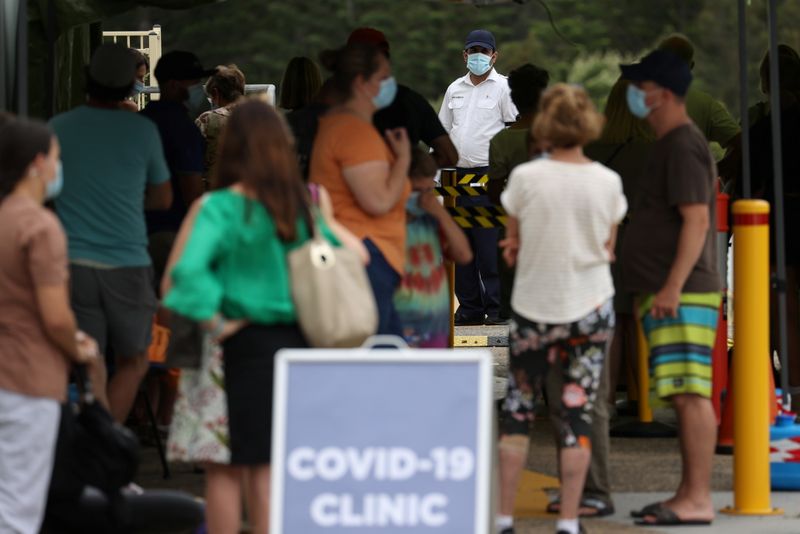SYDNEY (Reuters) – A hospital emergency department in Sydney was closed after a patient tested positive for COVID-19, Australian authorities said on Monday, as the city of Brisbane made face masks compulsory at public venues.
A man in his 40s tested positive for the virus on Sunday after coming to Sydney’s Mount Druitt Hospital, prompting it to close its emergency unit for cleaning, with media reports saying ambulances were diverted to other hospitals.
Although the unit reopened on Monday, health officials said they would investigate the man’s movements to determine where he contracted the illness and whether it was linked to a highly-contagious strain that was first detected in Britain.
“We are doing all we can to do rapid genome testing to understand where this virus sits in terms of its lineage and whether that gives us some clues of transmission,” said New South Wales state chief health officer Kerry Chant at a televised news conference.
Since the man and another member of his household tested positive after 8 p.m. local time, they would be counted in the following day’s official tally of new coronavirus cases. In the 24 hours to 8 p.m. on Sunday, three people in Sydney tested positive, Chant said, the country’s only community transmissions of the infection that day.
Thanks to border closures and widespread compliance with social distancing rules, along with aggressive testing and tracing programmes, Australia has been more successful than most advanced economies in managing the pandemic, with total infections in the country of 25 million people at around 28,600, including 909 deaths.
Last week, Queensland state put Brisbane, the country’s third-most populous city, into a three-day lockdown after one person tested positive to the strain originating in Britain. The lockdown was lifted on Monday after the state reported no new infections, although the authorities made it compulsory for 10 days to wear masks at indoor public venues like shopping malls.
Sydney and Melbourne have also made wearing masks compulsory in public.
“It is for 10 days only and then hopefully if we get zero community transmission over those 10 days then we can just go back to the rest of Queensland,” said Queensland Premier Annastacia Palaszczuk.
(Reporting by Byron Kaye, Editing by Raju Gopalakrishnan)
























